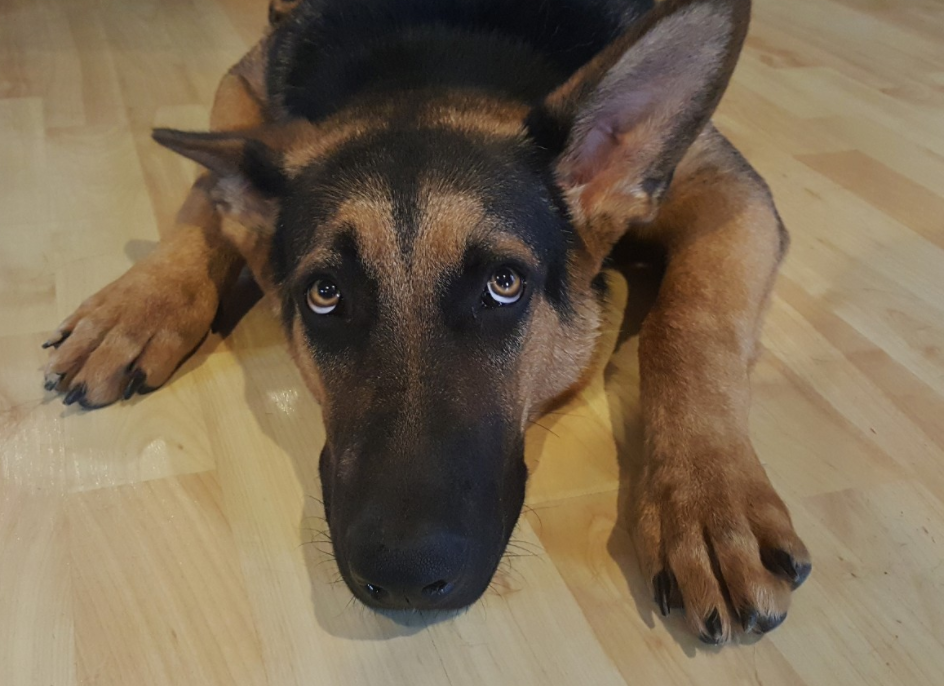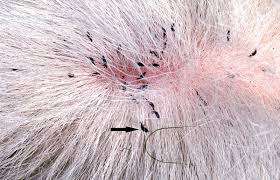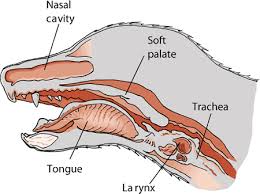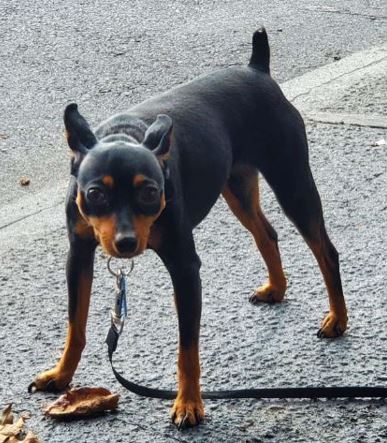Why Is My Dog Scared of Everything? This is how you can help your dog

Have you ever wondered why dogs are scared of everything? Are these fears normal for dogs that age? Do dogs just get startled easily or do they find everything scary? A lot of people think that their dog is scared of everything because the dog is too scared to go outside, too scared to go in the car, and even scared to go up the stairs. People often wonder when this fear first started for their dog and if something happened. Does it have anything to do with the fact that their dog has behaved that way for a while already, or was it something recent?
Here are some reasons why your dog might be scared of everything:Sudden noises
- Learned fear
- Pain or illness
- Age
- Noise Phobias
Meeting New people
Fear Of Crowds
Most Fast movements
Dogs have a strong sense of smell and may be afraid of unfamiliar smells.
Lack of socialization early in life.
Arming Yourself with the Right Tools
Taking Things Slowly
Use Distraction
Exercise Helps
>Have a routine
Give your dog affection
Offer your dog consistency
One thing that might be scaring your dog is sudden noises. There are a lot of things that make unexpected sounds: lawnmowers, firecrackers, thunderstorms or vacuum cleaners.
Your dog's ancestors were prey animals and so they were always on the lookout for predators that could hurt them. This means they could be afraid of anything that makes a loud noise or moves quickly, basically, anything that looks like a predator coming after them.
Sudden Noises may enhance other things:Your dog may have learned to fear certain sounds based on past experiences with the sound or from cues from you. For example, if you tell your pet to get away from the window during a storm, he may learn that thunderstorms are something he should be afraid of.
g a storm, he may learn that thunderstorms are something he should be afraid of. Pain or illness – A sudden noise may startle a dog experiencing pain or illness. If your pet has just undergone surgery, he may be very sensitive to noise. He may also be sensitive to noise if he has hearing loss or ear infections.
Older dogs (seven years and up) begin losing their hearing. This can cause them to feel confused and anxious when they hear sudden noises such as a door slamming shut. Dogs who are deaf will not normally experience fear due to the noise since they can't hear it, but they may become startled by vibrations caused by the sound in the same way we would jump if someone were to sneak up behind us and touch our shoulder.
Loud noises are the most common cause of fear in dogs. They can be triggered by thunderstorms, fireworks, gunshots and vacuum cleaners.
Dogs that suffer from noise phobias typically react to the sound of thunder or fireworks weeks before they actually hear them. This is because they associate certain environmental cues with impending storms or fireworks shows and begin exhibiting symptoms before the actual event takes place. For example, a sudden change in barometric pressure may trigger your dog’s anxiety.
Some dogs develop noise phobias because they experience frightening events while young and impressionable. However, there is evidence that genetics play a role in this condition as well. Some breeds are predisposed to noise phobias due to their heightened sensitivity to sound and their tendency to startle easily (e.g., Border Collies).
When you meet someone new, do you tend to treat that person as an enemy or as a friend? Most of us fall into the second category. We generally like meeting new people and making friends.
But if your dog has a fear of strangers, she might be using the first method, treating them as enemies. Dogs are social animals, but they can become aggressive when they're scared. And, unfortunately, most people don't understand that by approaching a scared dog, they're just making things worse.
Crowds can be overwhelming for some dogs, and with good reason. There are many things within a crowd that could cause them harm: someone who might step on them, another dog that might bite or loud noises that could hurt their sensitive ears.
Dogs are social animals, but that doesn't mean they love crowds. They need time to get to know new people and dogs, especially if it's a big group of them.
If your dog is scared of everything, consider where you take her. If she gets scared at the dog park, maybe it's because there are too many dogs and not enough room for her to get away from the ones that might bother her.
As with other fear issues, if you're able to catch your dog before she freaks out, try giving her treats or playing a game. This may calm her down and distract her from what's scaring her.
To understand this fear, you need to understand that dogs have evolved to react to fast-moving objects. The theory is that dogs are wired to be suspicious of anything that moves quickly because they don't know whether it is fleeing prey or a predator.
In the wild, if a dog sees something moving quickly, he needs to react fast. If it's prey and he doesn't react, he could miss his meal. If it's a predator, well, that's obviously bad news. So dogs are hard-wired to respond by being cautious of anything moving quickly.
smells. Think about all the strange smells that exist in the world, some odors are pleasant to humans, but strange for dogs (like cooked bacon or another delicious food item). Other smells can be even stranger, like smoke from a nearby fire or chemicals from cleaning products. Let your dog sniff around anything new to them before introducing them to it if possible.
Lack of socialization early in life is by far the number one reason why dogs become fearful of new things. The first 16 weeks of a dog's life are critical for the development of their personality and behavior. Exposure to lots of different people, animals, experiences and situations during this time is essential for their future happiness and confidence later on in life.
If you have adopted a puppy or an older dog that was deprived of socialization as a pup, you may face a challenge in helping them overcome their fears. But it is certainly not impossible! It's worth seeking professional help from an experienced animal behaviorist.
How to help your dog?
Helping your dog get over being scared of everything can be a hard job. But it will be worth it in the end.
The first thing you can do is get a head collar for your dog. This should be used in conjunction with positive reinforcement training, not punishment or negative corrections. A head collar will allow you to control where your dog's body is, but if your dog pulls, it will not cause pain or discomfort like a traditional choke collar. If your dog is fearful of people, he may pull away from them and the head collar will allow you to keep the interaction going without causing him added stress.
Many fearful dogs get worse over time if they are forced into situations that are too scary for them. You need to set your dog up for success by making sure he is able to make progress at his own pace. Don't force him into any situation that makes him uncomfortable and make sure each experience with something new ends on a good note.
Dogs need help focusing on positive things and avoiding stresses. You can help your dog get into this habit by giving them lots of good things to do instead of focusing on the scary things. Treats, toys, games, playtime, all of these things can distract your dog from something they might otherwise be afraid of.
A tired dog is a happy dog. Make sure you're getting in plenty of exercise! This doesn't mean lots of long walks through crowded streets (see below). It means lots of playtime at home or in an enclosed space like a fenced yard or dog park. If your pup has energy to burn, it's less likely they'll be scared or have anxiety flare ups.
Dogs love routine! By keeping to a regular schedule, feedings, walks, play time, potty time, you're helping your canine companion feel loved and secure.
It’s hard to see your dog in distress, but it can be even harder to resist comforting her when she’s scared or anxious. When you give her attention while she’s frightened, however, you reinforce the behavior and make it more likely to happen again. Instead of petting your dog or making soothing noises when he’s shaking with fear, wait for a moment when he seems calmer. Then gently pet him and offer praise for being brave.
Anxious dogs are often the product of inconsistent training methods that confuse them about the rules of your household. In order to help your dog feel more secure, employ only one set of commands — like “sit,” “stay” and “come” — across all family members. If you have children who interact with the dog, teach them to obey these same basic commands as well. By keeping things simple and maintaining a consistent routine of feeding and exercise times, you can make your home a more secure environment for your dog.
Conclusion
Our dogs are our best friends and we see them as little furry humans. So if our dogs are scared of everything why can’t we accept them for being scared? Why do we expect them to be fearless when truly that is something only God can give us? Dogs can be categorized into three groups, confident dogs, mid range dogs, and timid/fearful dogs. Confident dogs are overanxious, mid-range dogs are calm but not confident and the timid ones are scared of everything around them. If your dog falls in this last category you need to learn how to control his fears and help him overcome them.





